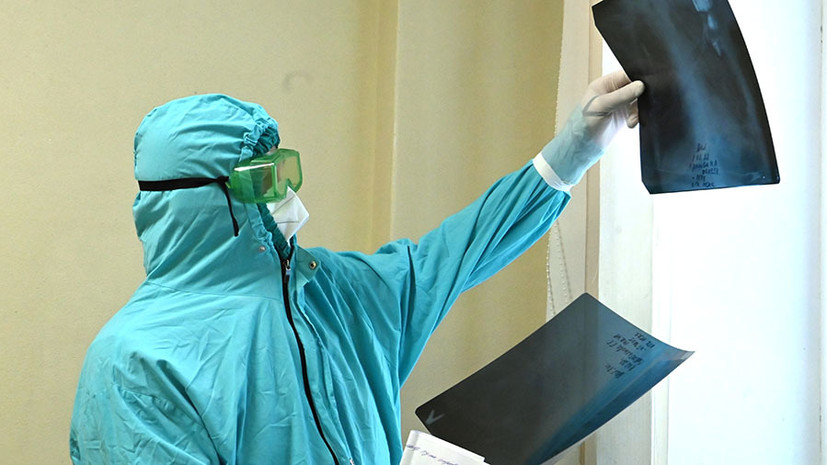The head of the Ministry of Health of the Russian Federation, Mikhail Murashko, said that Omicron and Delta strains are circulating in the country.
According to him, the chance of contracting a more dangerous variant is approximately 1:2.
As the minister clarified in an interview with Naila Asker-zade on the Russia 24 channel, it cannot be argued that the omicron disease is mild in all patients and does not pose any risks.
Murashko cited data according to which the number of hospitalized patients with coronavirus is about 190 thousand.
“The number of patients entering intensive care beds in absolute terms is also growing, because the number of patients who fall ill is still high,” he said.
In addition, Murashko said that the protocols for the treatment of coronavirus have changed against the backdrop of the emergence of "omicron".
A number of drugs that were less effective in treating this variant of the coronavirus were excluded from them.
“And these methodological recommendations (on the treatment of COVID-19. -
RT
) already fully summarize the accumulated experience, including both foreign and Russian experience, and make it possible to provide assistance as efficiently as possible,” said Murashko.
According to the minister, to date, about 82 million Russians have been vaccinated against COVID-19 with two doses.
He added that this figure also includes those who were revaccinated against the coronavirus.
Incidence
Over the past day in Russia, 16,349 people were hospitalized with coronavirus, which is 5.46% less than the previous day.
A day earlier, 17,294 COVID-19 patients were admitted to hospitals.
The total number of COVID-19 cases detected in 24 hours reached 137,642.
The number of recovered patients per day was 179,203, which is 9.1% more than on February 22, 2022.
In 24 hours, 785 patients died from complications that developed against the background of COVID-19 and concomitant diseases.
St. Petersburg became the leader in the number of detected cases - 9794 cases per day.
Further in descending order are Moscow (5664), Krasnoyarsk Territory (5473), Novosibirsk Region (4841) and Perm Territory (4520).
For the entire period of observation, 15,795,570 cases of coronavirus have been detected in the country.
347,816 deaths were recorded, 12,836,228 people recovered.
"Deltakron" and the prospects for the end of the pandemic
Anna Cherkashina, head of the scientific group for genetic engineering and biotechnology at the Central Research Institute of Epidemiology of Rospotrebnadzor, said that a hybrid version of the deltacron coronavirus has not yet been discovered in Russia.
“So far in Russia, this variant - “deltacrone” - has not been discovered.
There is not enough data about him to unequivocally answer the question of whether he is dangerous, ”RIA Novosti quotes Cherkashina.
Also on russian.rt.com Therapist Fedoseeva gave advice on rehabilitation after suffering COVID-19
She suggested that the properties of the "deltacron" would resemble the omicron strain of COVID-19.
Recall that the “deltacron” strain is a hybrid of the “delta” and “omicron” coronavirus strains, which was discovered by scientists from the Laboratory of Biotechnology and Molecular Virology of the University of Cyprus.
Immunologist Vladislav Zhemchugov believes that thanks to the Omicron strain, the coronavirus will become a seasonal SARS.
He expressed confidence that this type of disease will gradually replace all previous more dangerous options and bypass the entire planet.
“And this is where the process ends.
Many countries have already legally recognized it as socially harmless.
This means that he really became a seasonal SARS.
Our health care needs to concentrate on outpatient care, which the Ministry of Health is doing now, ”TASS quotes Zhemchugov.
At the same time, the expert expressed confidence that it is still necessary to be vaccinated against coronavirus, since unvaccinated people may face a severe course of the disease.
Zhemchugov added that the immunity obtained after "omicron" does not protect the unvaccinated from the "delta" strain.
“It is very different from the Delta, which is why they get sick again,” concluded Zhemchugov.

